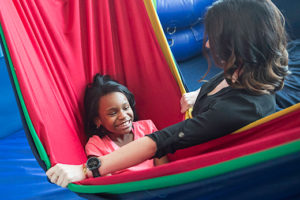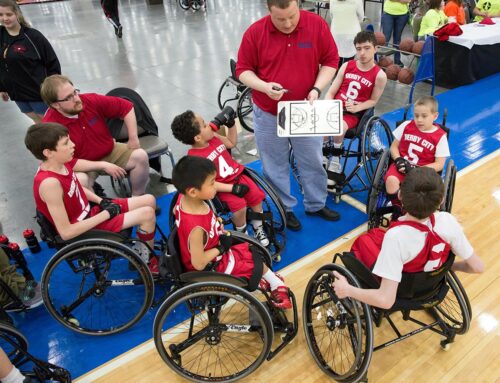Growth Mindset
When I tell people that I’m a pediatric physical therapist, most imagine me working with little league baseball stars and the like. However, most of my clients aren’t star athletes. Many of them, for one reason or another, lag behind their peers on the playground. The next assumption most people make is that I give these kids a list of fun exercises to do, and that’s the end of it. What most don’t realize is that I make significant efforts with families to instill what’s called a “growth mindset” rather than a “fixed mindset.”

Dr. Carol Dweck, a professor of psychology at Stanford University and author of the book Mindset: the New Psychology of Success, has shown in her research that student’s mindsets play an important role in their achievement, engagement, and happiness. Her studies revolve around the academic setting, but have implications in the realm of therapy. Many of my clients come in with a “fixed mindset.” Kids with a fixed mindset believe that they’re “smart” or “dumb,” and that those talented at sports, art, or academics were simply born that way. As a result, many of the kids shun exercise and sports and physical activity because they believe that the effort involved is spent on something they will never be good at. On the other hand, kids who adopt a “growth mindset” believe that with effort, progress toward all goals can be made.
As a physical therapist, my role is to provide guidance and exercise plans to families to help their children reach their movement goals. I tell all my families that their kids will be making the most progress at home with the provided exercise program, and that I am simply the information broker who monitors progress along the way. The clients who meet their goals the fastest are those motivated to complete their home exercise programs regularly, as muscles become stronger and more coordinated if they are worked for 10 minutes 3-4 days out of the week than they would if only worked for 1 hour for 1 day a week. Kids and their families who learn to adopt the “growth mindset” are the ones who most regularly make that effort.
Here are some of the things that I do to encourage a growth mindset:
- Praise the right way: Praise the process, not the results. It’s the hard work and practice that allow kids to reach their goals. Kids can get frustrated with repeated failures, so I always make sure to also praise the small changes they’ve made to get closer to their goal, even if they failed that particular task.
- Set small reachable goals: Large goals may seem too distant and can be intimidating for many kids. By setting a series of small, easily achievable goals, the momentum of these met goals gives kids a sense that their bigger goals can eventually be achieved, too.
- Embrace failure: we often learn the most when we fail. The payoff after defeating a problem is most satisfying when the task is hardest!
These are the things I try to instill in my clients and their families, and I hope that they carry it to other domains in their lives. It’s also what I tell myself as I struggle to teach myself how to play the ukelele. There are many reasons I became a physical therapist and not a musician, but had I known about self-limiting “fixed mindset” beliefs when I was younger, maybe I might be a scientist on the International Space Station!

Eyas Landing is a therapy clinic with a mission to provide evidence-based and family-centered therapy services for children, adolescents, and their families. The primary goal is to deliver relationship-based interventions within the most natural environments and to empower families to reach their full potential. To achieve this goal, our highly educated, compassionate staff dedicates time and expertise to create experiences that maximize therapeutic outcomes. The strength, determination, and perseverance of our clients are evident as they succeed in therapy, and ultimately in their daily lives.
Eyas Landing offers a wide range of comprehensive services including Speech Therapy, Occupational Therapy, Physical Therapy, ABA Therapy, Social Work, Family Therapy, and Neuropsych testing. Services are provided throughout the Chicagoland area via Telehealth, In-Home, and in our state of the art clinic.
Want to learn more or you have a specific question? Feel free to connect with us here!



